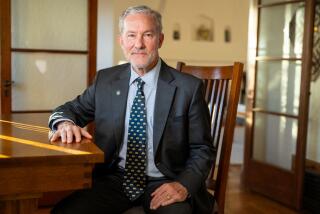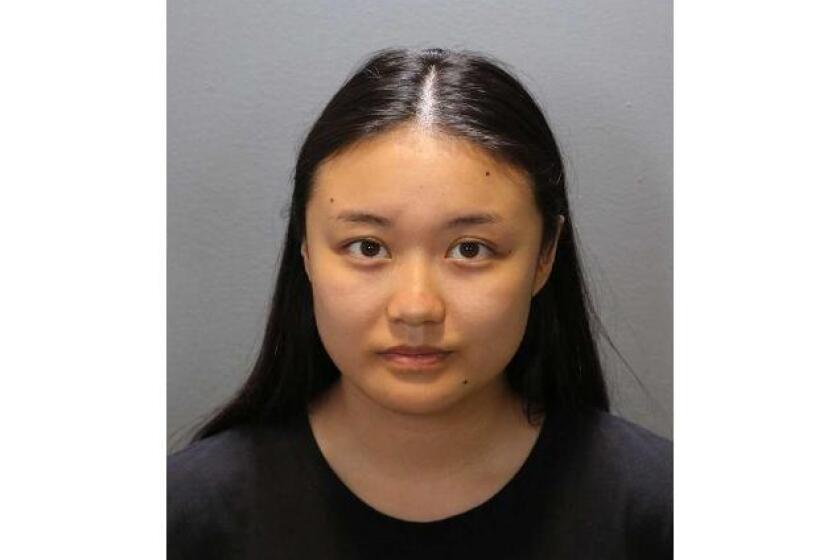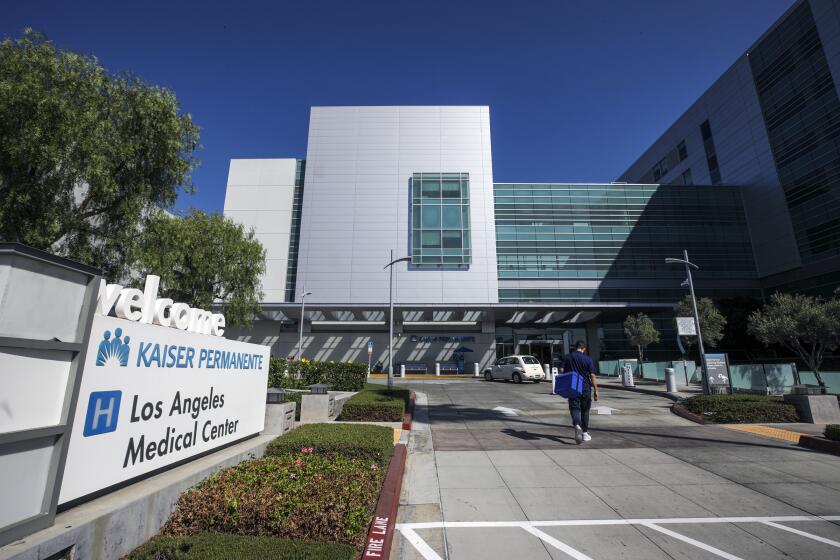UC Berkeley provost resigns after criticism of handling of sexual harassment and budget issues
UC Berkeley Provost Claude Steele resigned Friday following widespread criticism of his leadership in sexual harassment cases and the school’s budget crisis.
Steele, who has served as Berkeley’s chief academic officer since March 2014, will return to full-time teaching and research in the psychology department and also retain his faculty appointment in the Graduate School of Education.
In a statement, Steele said his wife’s health problems in recent months necessitated that he step down as executive vice chancellor and provost.
“Alas, my wife’s ongoing health challenges remain quite significant, and this is simply not a time in our lives where I can afford to further sacrifice our time together,” he wrote. “The choice has thus become clear: I can no longer offer UC Berkeley the time and level of commitment it needs from its EVCP, while at the same time being a part of my family in the way I want to be.”
Berkeley Chancellor Nicholas Dirks praised Steele for launching a budget overhaul and designing a new, more centrally managed fundraising organization. He also said Steele had improved campus diversity through an initiative to increase African American students and faculty, and by promoting more minorities to leadership positions in academics and athletics.
But Steele also has been under fire from faculty, students and staff for what they perceive as a failure to share information and consult with others before making decisions. Some have questioned whether his administrative background in private universities — notably Stanford and Columbia — had adequately prepared him to help lead a public research university.
“I have a great deal of respect for Professor Steele as a scholar and leader in his field and I hope that his wife can recover quickly from her illness,” said Paul Fine, an associate professor of integrative biology at Berkeley. But, he added, “there was a disconnect and lack of communication between the administration and the faculty with regards to several key issues.”
Fine said many professors have been concerned that Steele and Dirks too often have led with a top-down approach counter to the spirit of Berkeley’s long tradition of joint decision-making by administrators and faculty.
Michael Burawoy, co-chair of the Berkeley Faculty Assn., said Steele’s resignation would not resolve outstanding campus problems, such as inadequate sanctions in sexual misconduct cases and a budget crisis fueled in part by “administrative bloat.”
He called for a new leader who “knows and understands the campus, and is ready to admit what the problems are rather than push them under the table in a cloud of mumbo-jumbo.”
Criticism of Steele has mounted in recent months, particularly after he and Dirks allowed the dean of the law school to remain in his job after investigators had determined that the dean had repeatedly hugged, kissed and touched his executive assistant against her will for six months. Sujit Choudhry received a 10% pay cut and was ordered to undergo counseling and apologize, but has since resigned from the position.
Steele and Dirks did not notify law school faculty, staff or students — or University of California President Janet Napolitano — about their action in the Choudhry case until the victim revealed it in a civil lawsuit filed last month. The chancellor and provost then issued a statement saying that their decision not to remove Choudhry was “a subject of legitimate criticism” and unveiled a plan to beef up resources to combat sexual harassment on campus.
Steele and Dirks also declined to oust famed astronomer Geoff Marcy and gave a global ambassador job to Vice Chancellor of Research Graham Fleming even though both were found to have violated UC’s sexual harassment guidelines. Marcy subsequently was pressured by faculty members to resign, and Napolitano last month directed Dirks to remove Fleming from all university positions.
The administrators also have been criticized for failing to consult more widely in planning campus changes.
Dirks announced in February that Berkeley was facing a $150-million budget deficit, amounting to 6% of the annual operating budget. He then launched a campuswide process to rethink Berkeley’s future as the nation’s premier public research university, including looking for ways to streamline academic departments and professional schools. But some faculty members have complained they have not been adequately included in the discussions.
Before coming to Berkeley, Steele served at Stanford as dean of the School of Education from 2011 to 2014 and as a faculty member in social sciences from 1991 to 2009. He was also provost at Columbia University from 2009 to 2011. He is an expert in the psychology of threats to individuals.
------------
FOR THE RECORD
April 16, 8:20 a.m.: An earlier version of this article incorrectly listed the years that Steele was provost at Columbia University as being from 2011 to 2014. He was provost there from 2009 to 2011.
------------
For more education news, follow me @TeresaWatanabe.
ALSO
Melissa Murray steps in as interim dean of UC Berkeley Law School amid sexual-harassment scandal
UC President Napolitano to keep close tabs on Berkeley’s actions against sexual misconduct
UC Berkeley chancellor defends provost under fire in sexual harassment case
More to Read
Start your day right
Sign up for Essential California for news, features and recommendations from the L.A. Times and beyond in your inbox six days a week.
You may occasionally receive promotional content from the Los Angeles Times.







